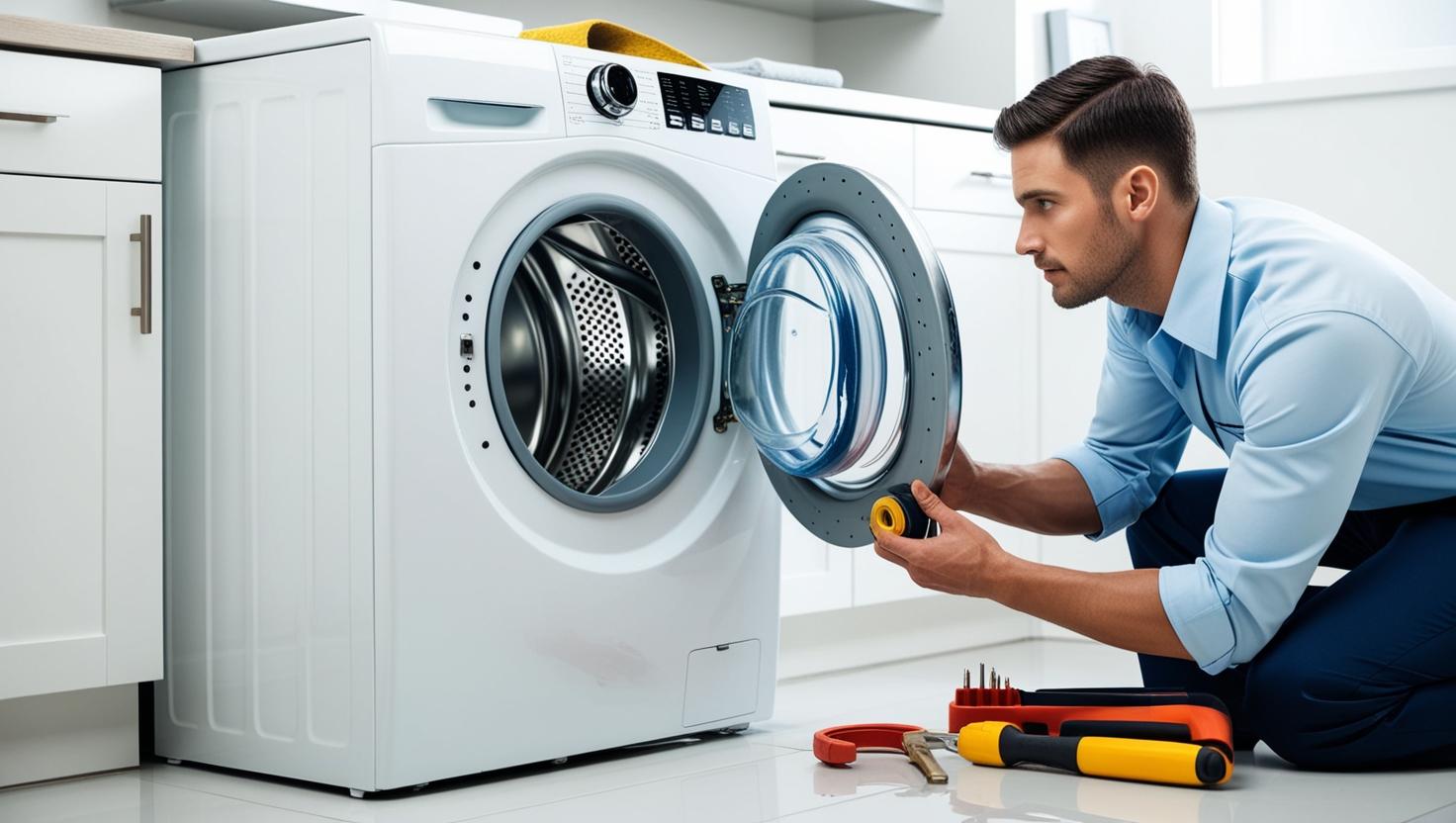Washing machine breakdowns can happen at any time, making the daily task of washing much more complex. What should you do when your trusty appliance starts to show signs of weakness? This article explores the various stages of washing machine troubleshooting, helping you to navigate between diagnostics, repairs and choosing between professional intervention or home solutions.
Why has my washing machine broken down?
There are many reasons why your washing machine may be malfunctioning or not starting at all. Common problems include poor water drainage, a blocked drum or a faulty motor. Correctly identifying the nature of the fault is the first step towards a successful repair.
Troubleshooting often begins with a visual inspection and a test of the unit's various functions. Sometimes, a simple problem with the electrical connection is enough to disrupt its operation. It's always a good idea to check these points before calling in a professional repairman.
Common mistakes to look for
- Washing machine won't turn on: check the electrical socket and make sure it works by plugging in another appliance.
- Water won't run: check that the hoses are not blocked or damaged.
- Unusual noises: these may indicate a load imbalance or an object jammed in the drum or pump.
Should I contact a professional repairer?
While some problems can be solved with a little DIY knowledge, others require technical expertise. A professional repairer is trained to diagnose faults quickly and carry out a guaranteed repair that extends the life of your appliance.
Calling in a qualified after-sales service can offer a safe and reliable solution. What's more, by choosing a rapid in-home intervention, you minimize the time without your essential equipment. The peace of mind offered by a washing machine repair expert is not to be underestimated.
After-sales service benefits
- Warranty on spare parts and work performed.
- Expertise to identify complex underlying causes.
- Clear quotation before any intervention.
Repairing yourself: good or bad idea?
For those who like to get their hands dirty, some basic repairs can be done yourself. All you need are the right tools and the essential safety precautions. A small water leak or an easy part replacement doesn't necessarily require a repairman.
However, beware of the risks associated with unprofessional DIY: aggravating the existing situation or exposing yourself to injury if basic safety instructions are not followed. Having clear guides or even using video-assistance services can really help.
Do-it-yourself tasks
- Clean clogged filters.
- Tighten loose screws or replace simple seals.
- Checking and replacing worn belts.
Choosing a convenience store: selection criteria
Opting for a good breakdown mechanic doesn't happen by chance. Certain criteria are crucial to avoid unpleasant surprises. Between reputation, rates and guarantees, it's essential to compare the offers available. Here are a few tips to help you make the right choice.
Which aspects to focus on?
- Technician certification and customer reviews.
- Response time and cost transparency.
- Post-repair follow-up options.
Logistical support and information: video-assistance
In the digital age, video assistance is emerging as a key support. Indeed, some companies offer services where their experts guide their customers remotely. It's fast, generally less costly, and particularly practical for small problems that don't require physical intervention.
This innovative approach maintains time flexibility and immediate access to qualified support. Of course, it complements the need for a physical presence for more complex interventions.
Washing machine troubleshooting: when toopt for visio-assistance?
- For superficial problems that are easy to solve with live instructions.
- When it would be neither economically viable nor quickly possible to send out a repairman.
- As a preliminary step to better prepare for future repairs.

Avoiding future breakdowns: a few practical tips
Even when you've solved a breakdown, prevention is often better than cure. A few simple actions can extend the life of your washing machine. Adopting regular maintenance practices also minimizes the chances of further disruption to your household routine.
Alternating wash programs, regular cleaning of detergent drawers and emptying garment pockets before each wash cycle are just some of the preventive measures you can take to keep your machine up and running smoothly.
Washing machine repair in Geneva and French-speaking Switzerland
In short, although some small washing machine problems can be solved yourself, it's often safer and more efficient to call in a specialist company.
A professional will be able to diagnose the fault quickly, use the right parts and guarantee a lasting repair. To avoid aggravating the situation or compromising the safety of your appliance, it's best to rely on the expertise of a qualified repairer.
For more than 50 years, the family-owned company Hoovernez Sàrl is specialized in the sale and repair of household appliances.

